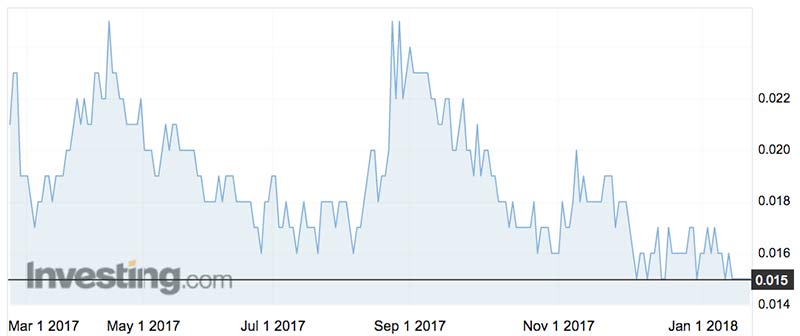Undervalued Suda due for a rise with Viagra spray

Pic: Godji10 / iStock / Getty Images Plus via Getty Images
If Suda Pharmaceuticals has its way, Viagra users won’t have to wait 30 minutes — and crucial ones at that — for the effects of the so-called Pfizer Riser to become apparent.
With Suda’s (ASX:SUD) reformulated oral-spray version of the drug, the active ingredients will hit the blood stream (and hence the targeted appendage) pretty much immediately.
Concurrently, Suda is well advanced with a similar spray-based iteration of the insomnia drug zolpidem tartrate — better known as Stilnox — which raises the prospect of the flesh being willing but the mind being …. zzzzz.
Such conflicting endpoints aside, Suda is at a crucial juncture in its decade-long quest to develop its 300-plus patent portfolio. In each case, the IP is all about allowing drugs to be absorbed directly through the mouth lining, rather than taking the diluted route through the stomach.
According to Suda CEO Stephen Carter, only about 10-30 per cent of the active ingredients of a tablet reaches the targeted area. Of course drugs injected into the bloodstream remain the most effective, but this involves scary big syringes.
To obtain regulatory approval, Suda only needs to show the sprays are safe and at least as effective as the tablet equivalent.
Wheeling and dealing
Suda isn’t re-inventing the wheel with greenfields drug development, but it’s very keen on wheeling and dealing with big pharma keen on extending the life of their popular drugs.
After dabbling for more than a decade, Suda is gaining traction with three commercial deals – that is, ones involving decent money changing hands — inked to date.
In the most substantive one, Chinese drug house Eddingpharm entered an exclusive deal to commercialise Zolpimist (Suda’s spray version of zolpidem) in China. Zolpimist is approved and selling in the US, but Suda does not have the rights to this geography.
Suda CEO Stephen Carter says 590 million Chinese have trouble sleeping, which is not surprise when you live next door to North Korea.

Separately, Teva has a similar deal to commercialise Zolpimist in the land of the siesta, Latin America (specifically Brazil, Mexico and China).
The value of the Eddingpharm deal “could exceed” $34 million, with an upfront payment of $400,000 and a $300,000 milestone on registration of the product.
The Teva deal is potentially worth more than $55 million, with an upfront payment of $400,000 and milestones of $2.3 million and double-digit royalties.
Other partnerships are at the courtship (collaboration) phase.
In the case of Pfizer, the world’s biggest drug company came to Suda seeking a spray formulation for two unnamed over-the-counter drugs (not Viagra).
Pfizer slung Suda a few bob for its work, but within the next ten months Pfizer will decide whether to negotiate a broader commercial licence involving upfront royalties and milestones.
“It (a deal) has the potential to be a game-changer but it is also a validation of our technology,” Carter says.
And the Pfizer Riser?
There’s no hard proposal so to speak, but Pfizer is almost certain to at least explore Suda’s Duromist — Suda’s product name for the reformulated sildenafil (branded Viagra).
With Viagra coming off patent, Teva and Mylan (which make generic versions) may also be interested.
Tackling cancer
Suda’s most recent utterances relate to its acquired oncology candidate anagrelide, an anti-thrombotic agent used since 1997 to reduce elevated levels of blood platelets.
In December Suda presented data to the American Society of Haematology’s annual meeting, supporting the use of anagrelide to treat solid tumours.
Several experts at the shindig in Atlanta, Georgia supported the theory by which the mechanism of platelet reduction interacts with the tumours and helps to mediate tumour growth and metastatis.
Suda plans to develop anagrelide in oral spray form to avoid side effects relating to “cardio stimulatory” side effects (heart palpatations).
Of course it’s early days and oncology is one of Suda’s least developed programs.
Other opportunities
While Duromist is still in clinical trial stage, Suda is more advanced with its spray versions of the malaria drug artemether, the migraine headache treatment
sumatripan and the anti chemotherapy-related nausea drug ondansetron.
Another interesting one – albeit at an earlier stage of development – is a spray version of midazolam, used to treat epileptic seizures.
Shire Pharmaceuticals markets the drug as Buccolam in 2012 and generates $US300m of sales.
The problem is that because patients present with strong muscular convulsions, the drug is difficult to administer in tablet or injectable form.
Suda also owns a non-core business called Westcoast Surgical & Medical Supplies, which distributes medical products such as gauzes and ultrasound devices.
While it’s likely to be sold, the business generates handy revenue ($7 million last year) that keeps the lights on at Perth HQ.
Financials
In August last year Carter lamented that Suda’s $22 million market cap remains unchanged between 2013 and now. Back then, Suda had one patent and one product, compared with 300 products and 30 patents now.
“We have been so busy adding value that we haven’t told people what we have done,” he says.
Sadly, Suda shares have slipped further, with the 1.5c share price implying a worth of a mere $18 million.
As at September 30 last year, Suda had $1.4 million in the bank and in November pocketed $662,000 as an R&D refund from the taxman.
Suda recorded receipts of $2.1m in the September quarter, up 35 per cent, including $1.8 million from Westcoast.
After expenses the company burnt a net $344,000.
Unusually, Suda braves a three-year revenue and profit projection.
Including the Westcoast contribution, management expects turnover $9.3 million in 2017-18, $15.6 million in 2018-19 and $24 million in 2019-20.
Dr Boreham’s diagnosis
A question keeping your Zolpimist-deprived scribe awake at night is why the big pharma companies haven’t developed their own spray-based delivery systems.
Carter says it’s because they tend to have a monolithic focus on getting blockbuster drugs to market in the first place, rather than managing their life cycle.
“It’s difficult for them to make a decision quickly.”
Like that expectant Viagra user, Suda’s lowly market valuation certainly does not reflect its potential full glory. Research house NDF values Suda at between 9c and 25c a share.
But furthering the various programs probably means that more cash is needed, so expect the company to add to its 1.22 billion shares on issue by raising more capital at some stage.
This column first appeared in Biotech Daily
Disclosure: Dr Boreham is not a qualified medical practitioner and does not possess a doctorate of any sort. But he will rise to the occasion anyway.
This article does not constitute financial product advice. You should consider obtaining independent advice before making any financial decisions. The content of this article was not selected, modified or otherwise controlled by Stockhead. Stockhead has not provided, endorsed or otherwise assumed responsibility for any financial product advice contained in this article.
UNLOCK INSIGHTS
Discover the untold stories of emerging ASX stocks.
Daily news and expert analysis, it's free to subscribe.
By proceeding, you confirm you understand that we handle personal information in accordance with our Privacy Policy.








